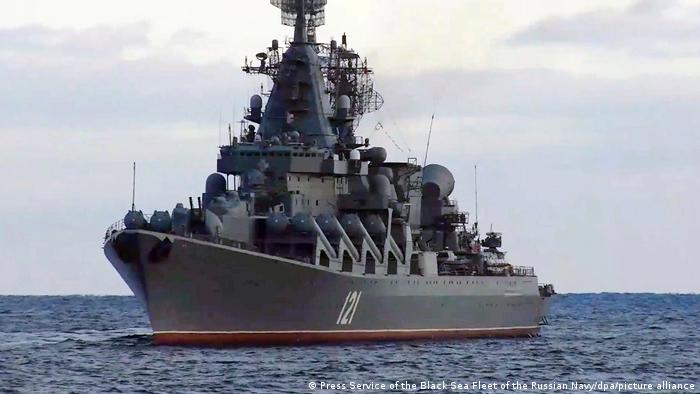
Wheat exports from Ukraine and Russia, which make up a vital part of the world's food supply are still being blocked by Russia from leaving the Black Sea, Germany's largest agricultural trader BayWa said this week.
"Zero [grain] is currently being exported from the ports of Ukraine — nothing is leaving the country at all," Jörg-Simon Immerz, head of the grain trading at BayWa, told dpa news agency.
He added that the export activity on the Russian side is "very limited."
Immerz's assessment was backed up by the Panamanian Maritime Authority, who said on Wednesday that the Russian Navy was preventing 200-300 ships from leaving the Black Sea — most of them were carrying grain. Other reports suggest around 100 vessels are blocked.
Noriel Arauz, the administrator for the authority, said three Panamanian-flagged ships have come under Russian fire since the invasion of Ukraine started. One of the ships sank and two others were damaged, while no one was injured.
British newspaper The Guardian reported that several other ships have been struck since the invasion began on February 24, including from Bangladesh and Estonia, which killed one person.
BayWa's Immerz said the entire market is following Ukraine's exports more than Russia's as they are currently deemed to be more at risk.
"The wheat was sown in the fall and now needs to be fertilized," Immerz said. "The corn hasn't even been sown yet, and if that can't be sown, of course, there will be no crop."
Days after the invasion, Ukrainian President Volodymyr Zelenskyy urged farmers to begin the sowing season as normal, where safe to do so.
BayWa, meanwhile, believes there is no reason to fear a wheat shortage as much more wheat is harvested in the EU than is consumed.
"The EU exports about 30 million metric tons of wheat annually, and Germany is also an exporter in normal years," Immerz said. But that is not true for all types of grain. "We rely on imports for corn," he added.Questions have been raised about how much grain Ukraine will be able to produce this year due to the conflict. At the same time, Russia has vowed to retaliate against Western sanctions that have crippled its economy.
Curbs on wheat and fertilizer exports are presumed to be high on Moscow's list, which could have further consequences for the world's food supply and food price inflation.
Russia produces close to 80 million metric tons of wheat a year and exports close to 30 million tons, while Ukraine exports about 20 to 25 million tons a year.
Russia blames the stoppage on the high risk of mines, which it said had been laid by the Ukrainian Navy.